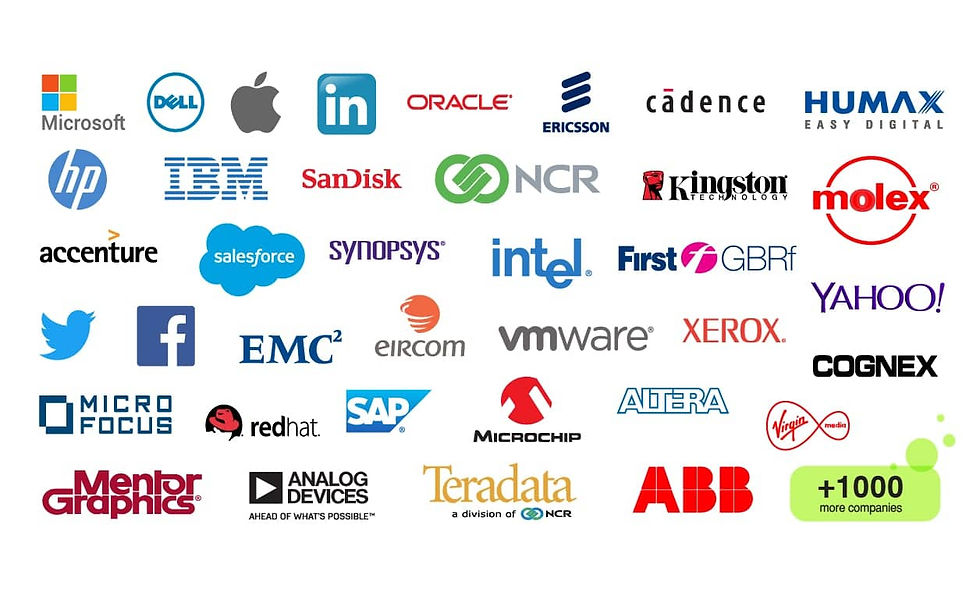PRODUCT BASED COMPANIES VS SERVICE BASED COMPANIES
- pk enterprises
- Aug 21, 2023
- 3 min read
After reviewing its options, TCS-IT IS decided to implement VMware datacentre virtualization for the first stage of the ICP project.” said Menon.[1] In 2011, TCS-IT IS began ramping up from a multi-tenant datacentre to a full cloud service and conducted a more comprehensive evaluation of the virtualization market. This included completing proofs of concept with two technology providers headquartered in the United States. “With one of the providers, we couldn’t mix and match data storage types,” said Menon. “We needed this because our existing storage area network did not have the capacity on its own to manage our workloads. “We also found that the products supplied by the other vendors were far behind in providing centralized management over a single console.” At this time, VMware was finalizing a new release of VMware vSphere® and briefed TCS-IT IS on features that made it easier to provision physical and virtual machines, enforce security and compliance, manage networks and control traffic flows. “We opted to stay with VMware because of its technical superiority and our comfort with the technology,” said Menon. “When it came to this stage of the project, we wanted to ensure that our choice of platforms and technologies was right, and that we could support a range of usage scenarios,” said Menon. “We selected VMware PSO to undertake the deployment so we could draw on the team’s experience and expertise,”.
SERVICE COMPANY.
They fulfil software requirements for a client. Examples of a service-based company are TCS, Infosys and Wipro Statement :-

PRODUCT BASED COMPANY

They fulfil product requirements of the general consumer.
Product-based company examples are Microsoft, Google and Yahoo,amazon.
Statement:-
CASE STUDY OF SERVICE BASED COMPANY (TCS) TCS’ offerings include application development and maintenance, business intelligence and business process services. TCS employs more than 285,000 professionals in 44 countries and in FY13 generated annual revenue of US$11.6 billion. In 2005, TCS created TCS IT Infrastructure Services (TCS-IT IS) to help businesses develop infrastructure that improved revenues, facilitated cost management and delivered better customer service. TCS-IT IS is growing at 30% annually and generates more than US$1 billion in revenue each year. The Challenge(TCS) In 2009, TCS-IT IS noticed that businesses around the world were adopting on-demand access to third-party infrastructure. rather than investing in on-premise servers, storage and networking equipment TCS-IT IS found many of these businesses wanted to extend this model to access applications such as enterprise resource planning as part of an integrated solution stack—comprising hardware, networking, software and services—from a third-party provider. TCS-IT IS started addressing this need by delivering infrastructure and applications as a service from its datacentres to small businesses in industries such as healthcare, education, retail and manufacturing
What exactly a problem that is faced by a company ?
How can they solve the problem?
OPTION AVAILABLE TO COMPANY
In 2010, TCS-IT IS decided to develop a cloud service that would extend its multi-tenant datacentre offerings to larger businesses. The proposed India Cloud Platform (ICP) would allow businesses of all sizes to access infrastructure and applications from the cloud.
TCS-IT IS wanted the ICP to scale easily, enable new customers to be added quickly and keep sensitive information secure. The ICP would also complement TCS-IT IS’ consulting services, which businesses could use to ensure their data in the cloud complied with internal policies and governance regimes, as well as external regulations.
What type of option is available with company and how it is beneficial for them ? The Solution
After reviewing its options, TCS-IT IS decided to implement VMware datacentre virtualization for the first stage of the ICP project.” said Menon.[1]
In 2011, TCS-IT IS began ramping up from a multi-tenant datacentre to a full cloud service and conducted a more comprehensive evaluation of the virtualization market. This included completing proofs of concept with two technology providers headquartered in the United States.
“With one of the providers, we couldn’t mix and match data storage types,” said Menon. “We needed this because our existing storage area network did not have the capacity on its own to manage our workloads. “We also found that the products supplied by the other vendors were far behind in providing centralized management over a single console.”
At this time, VMware was finalizing a new release of VMware vSphere® and briefed TCS-IT IS on features that made it easier to provision physical and virtual machines, enforce security and compliance, manage networks and control traffic flows. “We opted to stay with VMware because of its technical superiority and our comfort with the technology,” said Menon.
“When it came to this stage of the project, we wanted to ensure that our choice of platforms and technologies was right, and that we could support a range of usage scenarios,” said Menon. “We selected VMware PSO to undertake the deployment so we could draw on the team’s experience and expertise,”[2]




Comments